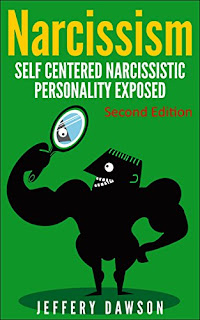Narcissistic Politics in Intimate Relationships 7 Signs of Narcissistic Abuse
by Dr. Jeanne King, Ph.D.
Narcissism is a term that has become mainstream in psychological and political circles today. It’s a term that grows out of psychology to refer to an individual with narcissistic traits or a narcissistic personality disorder.
Some people will tell you narcissism in politics has nothing to do with narcissism in one’s personal life. I beg to differ. In my experience, people are to those they love personally just as they are to the public whose support they seek. As Harv Eker says, “The way you do anything, is the way you do everything.”
Would you know if you were entangled in the politics of narcissistic abuse? Here are the seven tell-tale signs of narcissistic abusers. Understand these signs, and you will know the politics of narcissistic abuse.
1) No Empathy
These people truly don’t have the capacity for empathy. They do not have the ability to authentically embrace the experiential world of another person unless for selfish gain. In other words, these people can put on a good “caring” show in their effort to manipulate others for their own personal benefit. But they won’t and can’t stand in the shoes of another, genuinely.
2) No Remorse
These people don’t feel bad about any wrongdoing of theirs. Why? There is no conscience, no compassion, no concern about the impact of their behavior on others, even those they love. From the narcissistic abuser’s point of view, the other person deserves what they got because the narcissistic abuser is...
3) Entitled
These people hold rights—in their perverted thinking—that others would never assume. They live in a world in which they have privilege to that which is beyond your imagination. Whether they are objectifying you, raping you or ruling your life, they believe that they deserve what they seek, when and where they seek it because it is already theirs—before the ask.
4) Deceptive
They will tell you whatever they believe you need to know in order to get what they are attempting to extract from you. To these people, a lie is not a lie; it’s a mechanism to leverage outcome. A misrepresentation of information is the twisting of facts designed to convert another into compliance with respect to that which they pursue.
5) Dr. Jekyll/Mr. Hyde
These people will project a persona that is 180 degrees from who and what they really are. Whether priest, doctor or politician, they are not as they wish to have you believe. For example, they can be an attorney allegedly protecting an elderly woman from financial exploitation; all while emotionally manipulating/exploiting her, by using her as a flying monkey/agent in a mission to influence the behavior of her daughter.
6) Emotionally Dependent
These people require the emotional support and admiration of their narcissistic supply as oxygen to sustain them. They truly cannot function naturally and normally without the object of their narcissistic abuse serving as the foundation for their existence.
7) Uses Battering for Control
And when their narcissistic supply is in question, battering becomes the way to level the playing field. It is their means to shift the power and control within the relationship. It’s their way to tip the scale, so they gain the advantage they need to feel on top again.
This battering may present as verbal abuse, emotional abuse, financial abuse, sexual abuse or physical abuse. It’s the striking/maneuvering intended to diminish and dis-empower so as to nourish the deficiency in oneself.
If these signs are familiar to you, don’t sweep them under the carpet because the elephant they become can trip you up...big time...when you ignore them. For more information on narcissistic abuse dynamics, visit http://www.enddomesticabuse.org/narcissistic_abuse.php and claim Free Instant Access to The 7 Realities of Verbal Abuse. Dr. Jeanne King, Ph.D. helps individuals and couples worldwide recognize, end and heal from domestic abuse.
© Dr Jeanne King – Domestic Violence Prevention and Intervention





















.jpg)






0 Post a Comment:
ارسال یک نظر